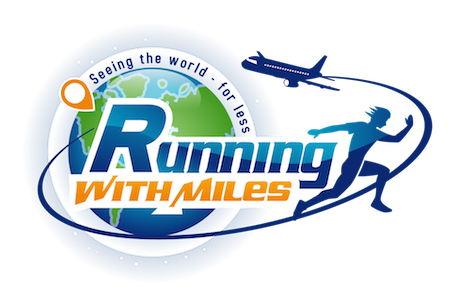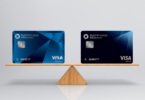Before you start applying for credit cards, it is a good idea to know what type of credit cards are available. I will give a brief rundown on the types of cards out there and what we will be breaking down in future posts to help you determine what will bring you the best value.
Airline Credit Cards
This type of card is a card that has a bank/airline partnership to give miles to the consumer in exchange for signing up for the credit card. For example, Delta and American Express have a partnership. Most of the airlines have a minimum of two credit cards with their partnered bank – one that is for the average consumer and one targeted for the airline’s elite flyers.
These are the partnerships of banks with legacy airlines:
- American Airlines – Citibank
- Delta – American Express
- United – Chase
- US Airways – Barclays Bank
The credit card offers that you will see for airline miles normally come at a minimum of 25,000 miles and initial annual fee is waived. Those initial perks are enough to draw consumers to sign-up typically, but after the first year, the annual fees come knocking. So, the airlines/banks have offers to keep them after that.
These are some of the perks/benefits that you get with the different consumer cards:
- 1 free bag for the cardholder (some offer 1 free bag for all of the passengers on the itinerary up to 9 people, others only make it available for 1 other passenger) – this benefit is worth the annual fee if you have 2 people go on a trip once a year in which they would each check a bag.
- An annual bump in miles if a certain spending threshold is reached (typically a bonus of 10,000 miles if spending reaches $25,000 in a year)
- 2 free passes for the airline’s lounge (worth $50 each)
- Free/$99 companion tickets (can be quite lucrative depending on different destinations in the US)
- There are other perks that come as targeted offers for the recipients
Then there are the other cards – the ones that are meant more for the airline’s frequent flyer. These cards have perks such as:
- Free airline lounge access (typically costs over $400 a year)
- Elite qualifying miles dependent on annual spending (different airlines have different levels – 10,000 elite miles for $40,000 spend, 1,000 elite miles for every $5,000 spend, 10,000/15,000 for $25,000/$30,000)
- Can have a First Class companion ticket
Unfortunately, these cards carry a very high annual fee – $395 – $450 a year. For the frequent flyer, they can be useful, otherwise, these should be passed over.
Hotel Credit Cards
Hotels offer great sign-up bonuses that fluctuate from time to time. These bonuses are a little more difficult to gauge as what is a good deal as each hotel loyalty program as a different point redemption system. We will go over these more in-depth in different posts, but will give some summary information here. Just like airlines, hotels are also associated with banks. Unlike airlines, hotels may be associated with more than one bank.
- Hilton HHonors – Citibank/American Express
- IHG Hotels – Chase
- Starwood – American Express
- Hyatt – Chase
- Marriott – Chase
- Best Western – Barclays Bank
- Choice Hotels – Barclays Bank
Though the benefits differ for the sign-up bonuses, they will each carry some variation on the following:
- Fee waived for the first year
- Mid-tier membership in their loyalty program
- Bonus points that will translate to 3-6 reward nights
- Upgrade certificates or perks
In order to keep the consumer after the first year, each card will typically offer a free night or a discount certificate, plus renewal in the loyalty program.
Transferable Credit Card Programs
This is yet another category of credit cards and this is a favorite of many mile and point redemption experts. This type of program is more preferred because it allows you to transfer to many different travel companies (airlines, rail, hotel). In addition to that, these programs also have shopping options that give you merchandise and gift cards in exchange for your points. Merchandise/gift card redemption is typically a very bad idea as you will rarely get better than a 1 cent per point redemption rate. When transferred to a airline, for instance, the redemption can be above 3 cents per point.
The two membership programs that are worth of noting are American Express (Membership Rewards) and Chase (Ultimate Rewards). Here are some of the points for each program:
- American Express – The Membership Rewards program works with multiple cards from American Express. Not all of them allow transfer of points to airlines/hotels, but they will earn points that can go into the program. There is a fee to transfer the points to loyalty programs (but no higher than $90), but there are wonderful bonuses that airlines and American Express run from time to time which work out really well and make the transfer fee not as significant. For example, earlier in 2011, they ran a promotion with Delta that gave you a 50% transfer bonus. I was able to transfer 100,000 Membership Reward points into 150,000 Delta Skymiles. In a future post, we will cover the benefits and partners that work with American Express.
- Chase Bank – Chase has Ultimate Rewards. It is a great program that allows redemption into several different programs. They do not charge any transfer fee and, while they do not run transfer bonuses as of yet, they offer promotions towards earning points. For instance, Chase ran several shopping promotions with different merchants after Thanksgiving. I was able to purchase much needed products from Best Buy through the Ultimate Rewards shopping portal and earn 10 points per dollar. They also ran a similar promotion with Apple (10 points per dollar). That was a fantastic promotion for someone that was looking to purchase a high-end Mac – they could have ended up with 20,000 points (almost a r/t ticket within the US after transferred to an airline)! Also, Chase gives a bonus of 7% of all points earned (including bonus points) in a calendar year. As with American Express, we will cover this in more detail in a future post.
Fixed Value Credit Cards
The last type of program is the credit card program that assigns points a fixed value for redemption. Capital One and Citibank are examples of this. Basically, whatever points you earn can be used to purchase tickets on ANY airline – but they are purchased at a fixed value. So, they assign a basic value to the point and you purchase your airline ticket through their travel portal (typically something like Expedia). The negative about this is that you could spend over 100,000 points on an international ticket that might only cost 60,000 mile to redeem if you are using an frequent flyer program. The positives are that you not bound by award redemption rules (blackouts, minimum nights stayed, etc), you can purchase tickets that may actually cost less than $250 (which would still cost 25,000 airline miles), and you can earn frequent flyer miles on the tickets you purchase with these points (something you cannot do with airline award tickets). These cards are normally not the best option for someone looking to go someplace that has a high ticket cost or hotel price, but they do have their place when the redemption rate undercuts the airline/hotel minimum redemption rate.
These are a lot of options! We will go through them one by one to help YOU decide what is the best type of card(s) for you and your travel plans. As you will see, you do not have to settle on just one card either – we will look at ways in which you can maximize your enrollments to bring you ever closer to your destination race!






